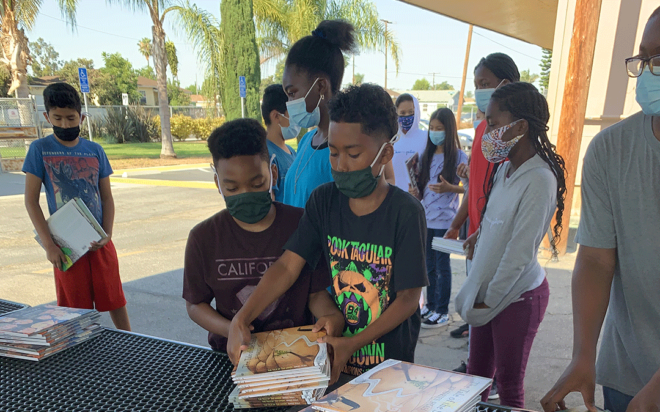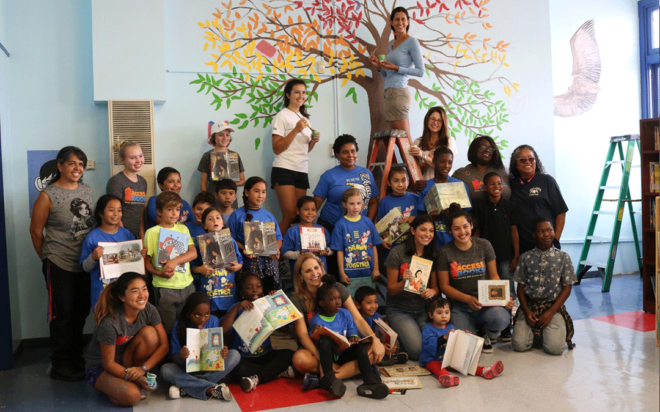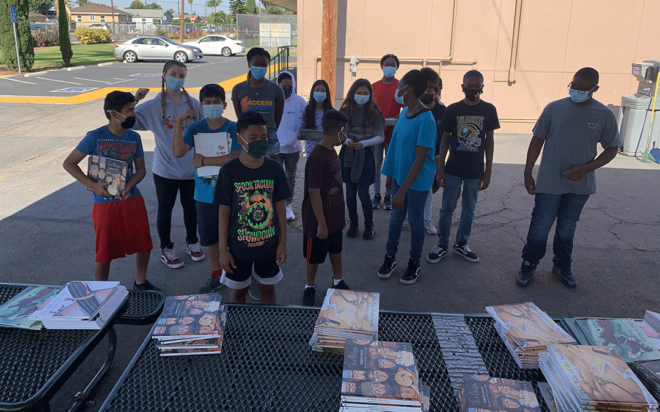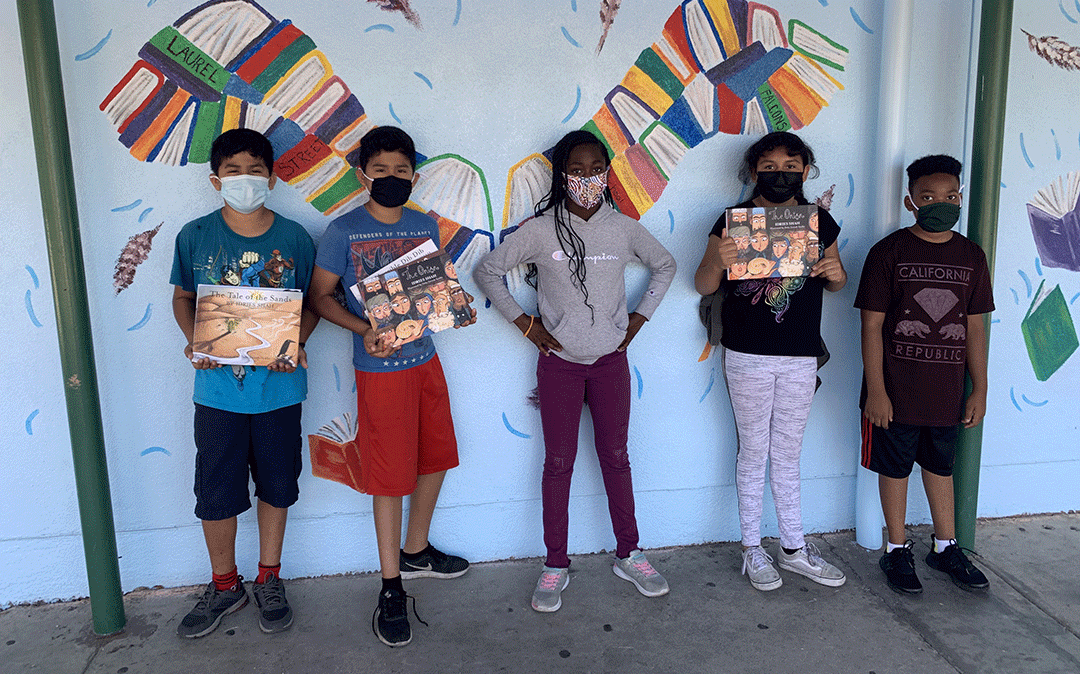 The Idries Shah Foundation is partnering with charities around the world to distribute Idries Shah’s work. Our newest partner is the incredible voluntary organisation in the United States, Access Books. Access provides books to schools and community libraries in Los Angeles, where the majority of students live at or below the poverty line. Since 1999, the charity has refurbished over 300 libraries and donated some 1.7 million books.
The Idries Shah Foundation is partnering with charities around the world to distribute Idries Shah’s work. Our newest partner is the incredible voluntary organisation in the United States, Access Books. Access provides books to schools and community libraries in Los Angeles, where the majority of students live at or below the poverty line. Since 1999, the charity has refurbished over 300 libraries and donated some 1.7 million books.
Over the summer, 1,000 copies of our children’s books – including The Onion, Speak First and Lose and The Horrible Dib Dib – were distributed at the Tibby Elementary School in Compton, in Los Angeles, where they were enthusiastically received.
‘We believe it is very important that children see themselves in stories,’ Rebecca Constantino, the founder of Access Books told ISF. ‘They need to roam the library and find writers and characters that look like them or their family. We want children to meet authors who come from the same background and culture. It is important that literacy does not mean Western writers and stories. Additionally, we want them to have access to other cultures, other stories and other ways of seeing the world.’
Here’s what else Rebecca had to say about the extraordinary work she and her volunteers are doing to help promote education and relieve poverty:

Q: Please describe the communities you work with and what challenges children face?
A: Access Books serves children living in poverty. While we can’t address all the needs the community has, we can address the inequity in access to and abundance of good books. Children we serve have little if any access to books in the home, the public library is not accessible and they do not have the means to purchase books. For children living in poverty, the school library is where they discover books and stories and have access to take them home. For children living in poverty, the best predictor of reading ability is the quality of the school library. We firmly believe that literacy is a civil right. We are committed to providing literacy opportunities and books to students we serve.
Q: Why do you focus on book distribution as a way to helping children living in poverty?
A: Children learn to read by reading but they must have something to read. All children should have access to quality books and libraries. While literacy is critical in getting out of poverty, books also provide a refuge. While reading is critical for academic success, it also integral to emotional well-being. Many students we serve face great obstacles – food insecurity, violence and homelessness. As one student said, ‘When I feel overwhelmed by everything, if I read a good book, I feel better.’ Another student added that during a school lockdown the teacher read aloud to them. ‘I felt less scared and worried because I started listening to the story.’
Q: The Idries Shah Foundation’s work focuses on using stories as a means to increasing people’s understanding of our own psychology, helping people be their most effective selves, bridging cultures and helping societies think critically about themselves. How does that fit in with the work of Access Books?

A: We believe it is very important that children see themselves in stories. They need to roam the library and find writers and characters that look like them or their family. We want children to meet authors who come from the same background and culture. It is important that literacy does not mean Western writers and stories. Additionally, we want them to have access to other cultures, other stories and other ways of seeing the world. As Meghan Schmidt wrote, ‘Through fiction, we can experience the world as another gender, ethnicity, culture, sexuality, profession or age. Words on a page can introduce us to what it’s like to lose a child, be swept up in a war, be born into poverty, or leave home and emigrate to a new country. And taken together, this can influence how we relate to others in the real world.’
Q: What message would you give to our supporters who provide the funding to make these books available?
A: Literacy is a right. Sadly, even in the United States, students don’t have access to this basic right. By providing quality libraries and literacy opportunities, we can help make the world more equitable, empathetic and of course, smarter!
Rebecca Constantino, PhD has worked on literacy programmes around the world and is a recognised authority on literacy development, equity in education and urban schooling. She founded Access Books in 1999.
